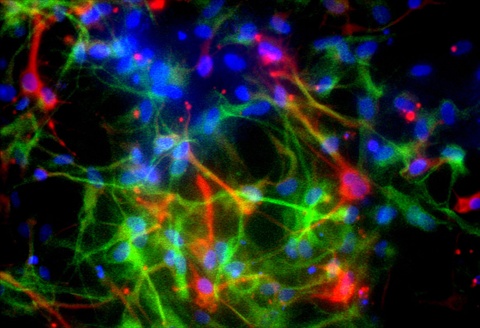Members Login

Channels
Special Offers & Promotions
On-demand webinar discusses latest advances in 3D Cell Culture technology

AMSBIO, a supplier of advanced 3D tools to the life science community, recently participated in a '3D Cell Culture in Drug Discovery and Disease Modeling' webinar. Due to huge demand, the webinar which aired on 22nd May, has been reproduced in an on-demand version.
Driven by the limitations of 2D cell cultures - scientists search for alternative solutions that mirror the environment experienced by normal cells in the body and replicate complex tissue structures and in vivo-like morphology. The '3D Cell Culture in Drug Discovery and Disease Modeling' webinar focuses on discussing the latest advances in 3D technology and its contribution to conducting more realistic research.
Dr Erik Miljan, founding director of Simply Cells Ltd assesses the impact on the physiological relevance of in vitro cell based models using traditional ECM proteins, recombinant biomimetics hydrogels and other matrices like polystyrene scaffolds in drug discovery and disease modeling applications. Highlighting real examples including spheroid and neuronal stem cell culture, Dr Miljan demonstrates how different 3D technologies can be applied to specific needs of researchers.
"This webinar offers a fantastic opportunity to learn about the many benefits of growing cells in 3D", said Dr Alex Sim, Managing Director of AMSBIO. "The scientific team at AMSBIO is very excited about the applications that 3D culture opens up for life science researchers and the fact that we offer the most comprehensive range of reagents for all its uses".
The on-demand version of the 3D Cell Culture webinar, as well as downloadable white papers and articles on the subject are available from the AMSBIO website.
Founded in 1987, AMS Biotechnology (AMSBIO) is recognised as a leading international provider of unique, innovative products & custom services for life sciences research. The AMSBIO range includes over 23,000 polyclonal & monoclonal antibodies, peptides, recombinant proteins, extracellular matrix, molecular detection reagents, & tissue DNA, RNA, protein & microarray products. Key research areas include: apoptosis, cell invasion & migration, cell signaling, DNA damage, 3D culture, electrophoresis, glycobiology, post-translational modification & stem cell biology.
Media Partners


